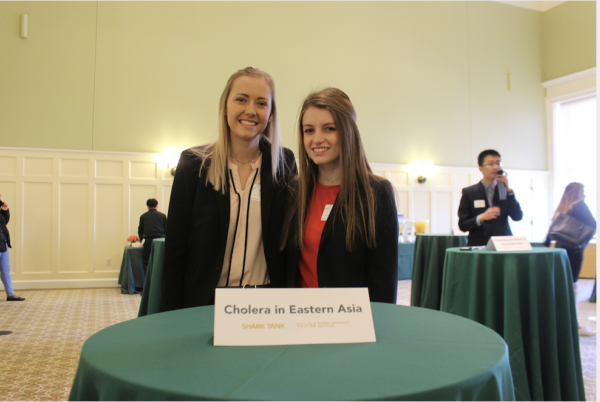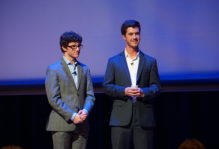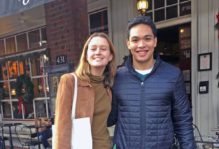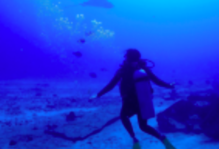How to Think Like An Entrepreneur
By Anna Raymond ’23 and Kayla Seggelke ’23
Cholera in Eastern Asia: Investigating the Epidemiological Effects of Increased Coastal Flooding and the Success Rates of Subsequent Aid Efforts
Throughout our Shark Tank experience, we consistently received unprecedented levels of support across the William & Mary community, particularly from the Global Research Institute. Upon visiting the Institute for our first meeting, we were immediately encouraged and empowered by the level of attention that was devoted to us. From the very beginning, we felt as though we had found a group dedicated to the betterment of our concept and equally engaged in the acceleration of our idea. Whether it was attempting to navigate the difficult task of making contacts throughout eastern Asia or simply navigating the mechanics of our first ever large-scale presentation, there was never a shortage of enthusiastic support from every person that we encountered. Since we are freshmen, there is no doubt that our project wouldn’t have made it through the first round without the collaborative efforts of the Global Research Institute. Through guidance from David Trichler, Mike Tierney, judges from the semi-finals and finals, and everyone else who offered their assistance, we learned how to present efficiently, how to budget for a research project, and how to think like an entrepreneur. As we have gone through the Shark Tank competition process, we have gathered valuable knowledge and experience in the field, and, with the continued support of the Institute, we are eagerly anticipating the commencement of our project.

Seggelke (left) and Raymond (right) at the Shark Tank Finals. They won $5000 in funding to support their research!
Our project will focus around the increasingly prominent intersection of climate change and cholera outbreaks. Given a heightened occurrence of coastal flooding and rising sea levels, populations worldwide are at risk for elevated incidences of this waterborne disease. We are aiming to develop an interface capable of predicting the location and intensity of future cholera outbreaks in an era of climate change, thereby increasing the effectiveness of subsequent aid distribution and relief efforts. We have chosen to focus our initial efforts on evaluating this relationship in the region of eastern Asia, allowing for a pilot case that we can later extrapolate to a global scale. The preliminary stages of our project will involve data analysis and application in order to correlate past cholera outbreaks with related flooding conditions. The trends discovered in this investigation, along with other relevant social and economic factors, will be accumulated to produce a model capable of anticipating future outbreaks.
The following stages will include testing and evaluating the results in order to ensure an accurate model of epidemics in relation to climate events. Upon the completion of such audits, we will build a usable interface which allows for user-specified inputs on local conditions and provides an output containing both the probability and magnitude of a suspected outbreak in the area. We then plan to apply this tool, along with environmentalists’ predictions of proposed sea level rises, to hypothesize what effects major cities may endure in regard to waterborne illness. This application will involve the utilization of satellite imagery in order to gain an overview of eastern Asian cities and anticipate what consequences elevated sea levels will have on these populations and resources. We are looking forward to working with our mentor and the Global Research Institute as we move forward into the next stage of our project!
Note: GRI-sponsored travel has been postponed due to COVID-19.
Comments are currently closed. Comments are closed on all posts older than one year, and for those in our archive.




Informative… Thank you